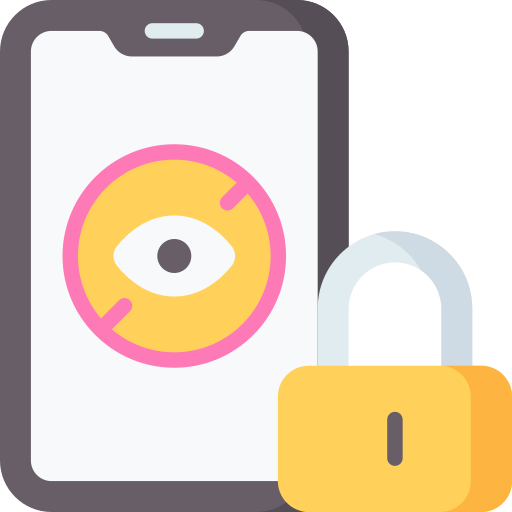Privacy Concerns Associated with Voice Assistants
Voice assistants have become increasingly popular in households around the world, providing convenience and assistance with everyday tasks. However, along with their benefits come privacy concerns that users should be aware of. One major concern is the potential for voice assistants to eavesdrop on conversations without explicit user consent. While companies claim that these devices only start recording after a specific wake word is spoken, there have been instances where recordings have been triggered accidentally or even by similar-sounding words.
Another privacy concern associated with voice assistants is the collection and storage of personal data. These devices are constantly listening and may capture sensitive information such as passwords, credit card details, or other private conversations. Although companies assure users that this data is securely stored and used solely to improve user experience, there is always a risk of unauthorized access or misuse.
Furthermore, there are worries about how voice assistant data can be shared with third parties for targeted advertising purposes. Users may unknowingly provide consent for their information to be shared when agreeing to terms and conditions without thoroughly reading them. This raises questions about transparency and control over personal data.
It is crucial for individuals using voice assistants to understand these privacy concerns and take steps to protect their information. Being cautious about what you say near these devices can help minimize the risk of accidental recordings. Additionally, regularly reviewing privacy settings within the accompanying apps or websites can ensure that personal data isn’t being unnecessarily collected or shared without consent.
In conclusion,
As technology continues to evolve rapidly, it’s important for both users and manufacturers alike to address these privacy concerns associated with voice assistants proactively. Striking a balance between convenience and protecting personal information will require ongoing efforts from all stakeholders involved in developing these technologies.
Risks of Inappropriate Content Exposure
Voice assistants, while providing convenience and assistance, also pose risks of exposing users to inappropriate content. This is particularly concerning for children who may inadvertently come across explicit or harmful material. The lack of proper filtering mechanisms can allow access to age-inappropriate content, leading to potential psychological and emotional harm.
One major concern is that voice assistants often rely on algorithms to generate responses and provide information. These algorithms are not foolproof and can sometimes fail in distinguishing between appropriate and inappropriate content. Consequently, there have been instances where voice assistants have provided explicit or offensive responses when asked certain questions or given specific commands.
Another risk associated with inappropriate content exposure is the potential for cyberbullying or harassment through voice assistant interactions. Cybercriminals may exploit vulnerabilities in these systems to send malicious messages or engage in harmful conversations with unsuspecting users, especially children who may not be aware of the dangers lurking behind seemingly innocent interactions.
Moreover, the integration of third-party apps and services into voice assistants further increases the risk of exposure to inappropriate content. Without proper monitoring and regulation by app developers, there is a possibility that these apps could contain explicit material or facilitate access to such content through voice assistant interactions.
It is crucial for both manufacturers and parents alike to address these risks proactively by implementing robust filtering mechanisms that prevent access to age-inappropriate content. Additionally, ongoing monitoring and updating of algorithms should be conducted regularly to ensure accurate identification and filtration of potentially harmful material. By taking these steps, we can minimize the risks associated with inappropriate content exposure through voice assistants while still enjoying their many benefits.
Potential Data Collection by Voice Assistants
Voice assistants, such as Amazon Alexa and Google Assistant, have become an integral part of our daily lives. These devices are always listening for their wake words, ready to respond to our commands and queries. However, this constant listening raises concerns about the potential data collection by voice assistants. While companies claim that they only record and store audio snippets after the wake word is detected, there have been instances where recordings were unintentionally triggered or even reviewed by human employees.
One major concern with data collection by voice assistants is privacy. Users worry about their conversations being recorded and potentially shared with third parties without their consent. This fear has been heightened by reports of accidental recordings being sent to random contacts or unauthorized individuals having access to these recordings. It is crucial for users to understand what data is being collected and how it will be used in order to make informed decisions about using voice assistants.
Another issue related to data collection is the security of personal information stored by voice assistants. As these devices become more integrated into our homes and lives, they gather a wealth of sensitive information about us – from our daily routines and preferences to our shopping habits and even health-related inquiries. Any breach or misuse of this information could lead to serious consequences such as identity theft or targeted advertising.
To address these concerns, it is essential for companies developing voice assistant technology to prioritize user privacy and security. They should provide clear explanations regarding what data is collected, how long it will be retained, who has access to it, and how it will be protected from unauthorized use or disclosure. Additionally, users should have full control over their own data through easily accessible settings that allow them to manage permissions for recording storage or delete any stored recordings if desired.
By addressing potential issues surrounding data collection by voice assistants head-on while implementing robust privacy measures, we can ensure that these technologies continue benefiting users without compromising their personal information or infringing upon their privacy rights.
Protecting Children’s Personal Information
Parents and guardians play a crucial role in protecting their children’s personal information when using voice assistants. One important step is to carefully review the privacy settings of the device and adjust them accordingly. This includes disabling features that may collect unnecessary data or share it with third parties without consent. By taking control over these settings, parents can ensure that their child’s personal information remains secure.
Another key aspect of protecting children’s personal information is educating them about privacy risks associated with voice assistants. Parents should have open conversations with their children about what information should be shared and what should remain private. Emphasizing the importance of not sharing personal details such as full names, addresses, or phone numbers can help instill good habits early on.
In addition to education, parents should also consider implementing parental controls on voice assistants. These controls can limit access to certain content or restrict specific actions that may pose a risk to children’s privacy. By setting up age restrictions and monitoring usage patterns, parents can better protect their child from potential exposure to inappropriate content or data collection by the device itself.
By being proactive in reviewing privacy settings, educating their children about potential risks, and utilizing parental controls effectively, parents can take significant steps towards safeguarding their child’s personal information when using voice assistants. It is essential for caregivers to stay vigilant and continuously monitor advancements in technology to ensure they are equipped with the knowledge needed to protect their child’s online privacy effectively.
Ensuring Voice Assistant Security
Voice assistant security is of utmost importance in today’s digital age. With the increasing use of voice assistants in homes and offices, it is crucial to ensure that these devices are protected from potential threats. One way to enhance security is by regularly updating the software and firmware of voice assistants. Manufacturers should provide timely updates that address any vulnerabilities or weaknesses discovered.
Another aspect of ensuring voice assistant security is implementing strong authentication measures. This can include requiring users to set up unique passwords or using biometric authentication methods such as fingerprint recognition or facial recognition. By adding an extra layer of protection, unauthorized access can be prevented, safeguarding personal information stored on these devices.
Additionally, encryption plays a vital role in maintaining voice assistant security. All data transmitted between the device and external servers should be encrypted to prevent interception by hackers or malicious entities. End-to-end encryption ensures that only authorized parties have access to sensitive information, providing peace of mind for users.
By prioritizing regular updates, implementing strong authentication measures, and utilizing encryption protocols, manufacturers can significantly enhance the security of voice assistants. It is essential for both manufacturers and users to remain vigilant about potential threats and take necessary precautions to protect their privacy and personal information when using these devices.
Implementing Age Restrictions for Voice Assistants
Age restrictions for voice assistants are an important consideration in ensuring the safety and privacy of children. By implementing age restrictions, developers can prevent young users from accessing content that may be inappropriate or potentially harmful. This is particularly crucial as voice assistants become more integrated into our daily lives and children have increased access to them.
One approach to implementing age restrictions is through user authentication. Voice assistants could require users to verify their age before granting access to certain features or content. This could involve linking the device with a parent’s account or requiring a password that only adults would know. By doing so, parents can have better control over what their children can interact with on voice assistant platforms.
Another strategy for implementing age restrictions is through content filtering and monitoring. Developers could create algorithms that detect and filter out explicit or inappropriate content when requested by younger users. Additionally, regular monitoring of the interactions between children and voice assistants can help identify any potential risks or breaches of privacy.
By taking these measures, developers can ensure that voice assistants are used responsibly by individuals of appropriate ages while protecting children from exposure to potentially harmful material. It is essential for both technology companies and parents to work together in establishing effective age restrictions that prioritize the safety and well-being of young users in today’s digital world.
Monitoring and Filtering Voice Assistant Content
One important aspect of using voice assistants is the need to monitor and filter the content that they provide. Given their ability to access a wide range of information, it becomes crucial to ensure that users, especially children, are not exposed to inappropriate or harmful content. This can be achieved through various means such as setting up parental controls or utilizing filtering technologies.
Parents and guardians should actively engage in monitoring the content accessed by voice assistants. Regularly reviewing the interactions and queries made by children can help identify any potential risks or concerns. Additionally, being aware of the specific features available on different voice assistant platforms can aid in implementing appropriate restrictions and filters.
Filtering technologies play a significant role in ensuring a safer browsing experience with voice assistants. These tools use algorithms and databases to analyze spoken requests for potentially objectionable material before providing responses. While no system is perfect, these filters help minimize exposure to explicit or harmful content.
By actively monitoring and employing filtering techniques, we can mitigate some of the risks associated with inappropriate content on voice assistants. However, it is essential for both parents and service providers to continuously update their knowledge about emerging trends in technology and adapt their strategies accordingly. The responsibility lies with all stakeholders involved – from developers creating secure systems to caregivers who guide children’s usage – in order to create a safe environment when interacting with voice assistants.
Managing Voice Assistant Permissions
One important aspect of managing voice assistant permissions is to regularly review and update the settings. As technology evolves, new features and capabilities may be added to voice assistants, which could potentially impact privacy and security. By regularly checking and adjusting the permissions, users can ensure that their personal information is protected and that they have control over what data is being collected.
Another key consideration when managing voice assistant permissions is to carefully evaluate the access granted to third-party apps or services. Voice assistants often integrate with various applications and platforms, allowing users to perform tasks such as ordering products or accessing specific content. However, it’s essential to review these integrations and understand what data may be shared between the voice assistant and these external services.
Additionally, users should take advantage of any available options for limiting data collection by voice assistants. Many devices offer settings that allow users to specify how much information they want their voice assistant to collect. By adjusting these settings according to individual preferences, users can strike a balance between convenience and privacy while using their voice assistant.
By following these practices for managing voice assistant permissions effectively, individuals can enhance their overall privacy protection while still enjoying the benefits offered by this technology without compromising on security or exposing sensitive personal information unnecessarily.
Educating Children about Privacy and Voice Assistants
With the increasing prevalence of voice assistants in our homes, it is crucial to educate children about privacy concerns associated with these devices. Children may not fully understand the potential risks and implications of sharing personal information with voice assistants. Parents should take the initiative to have open conversations with their children about privacy and explain how voice assistants work.
One important aspect to emphasize is that voice assistants are always listening, waiting for a wake word or command. Children need to be aware that anything they say within earshot of the device can potentially be recorded and stored. It is essential for parents to teach their children what kind of information should never be shared with a voice assistant, such as full names, addresses, phone numbers, or any other sensitive personal details.
Furthermore, parents should encourage their children to ask questions if they are unsure about anything related to privacy when using a voice assistant. By fostering an environment where curiosity is encouraged and concerns are addressed openly, children will feel more comfortable discussing any uncertainties they may have. This approach will help them develop critical thinking skills when it comes to protecting their own privacy online and offline.
In order for children to make informed decisions regarding privacy while using voice assistants, ongoing education is necessary. Parents should regularly update themselves on best practices and guidelines provided by manufacturers or trusted sources so that they can pass this knowledge onto their children effectively. By doing so, we can empower our younger generation with the necessary tools and understanding needed in today’s digital age
Best Practices for Parental Control on Voice Assistants
Voice assistants have become increasingly popular in households, providing convenience and assistance with various tasks. However, it is crucial for parents to implement effective parental control measures to ensure their children’s safety and privacy while using these devices. One important practice is setting up age restrictions on voice assistant accounts. By doing so, parents can limit the content that their children can access and prevent them from being exposed to inappropriate material.
Another best practice is monitoring and filtering the content that voice assistants provide. Parents should regularly review the interactions and responses given by these devices to ensure they align with their family values and standards. This may involve checking search history or reviewing the types of information requested by their children through voice commands.
Additionally, managing permissions granted to voice assistants is essential for protecting children’s personal information. Parents should carefully consider what data they allow these devices to collect and share, as well as regularly reviewing privacy settings associated with their accounts. By being proactive in adjusting privacy settings, parents can minimize potential risks associated with data collection by voice assistants.
By following these best practices for parental control on voice assistants, families can enjoy the benefits of this technology while also ensuring a safe environment for their children online. It is important for parents to stay informed about new features or updates related to these devices’ safety measures in order to adapt their strategies accordingly without compromising privacy or security concerns.
What are some privacy concerns associated with voice assistants?
Privacy concerns associated with voice assistants include the possibility of the device recording and storing conversations, and the potential for unauthorized access to personal information.
What are the risks of inappropriate content exposure through voice assistants?
Voice assistants may inadvertently expose children to inappropriate content, such as explicit language or violent information, if not properly controlled and monitored.
Can voice assistants collect and store personal data?
Yes, voice assistants have the capability to collect and store personal data, including voice recordings and user preferences, which may raise concerns about data privacy and security.
How can parents protect their children’s personal information when using voice assistants?
Parents can protect their children’s personal information by reviewing the privacy settings of voice assistants, limiting the amount of personal information shared, and regularly monitoring and deleting stored data.
How can parents ensure the security of voice assistants?
Parents can ensure the security of voice assistants by regularly updating the device’s software, using strong passwords, and enabling two-factor authentication if available.
Can age restrictions be implemented for voice assistants?
Yes, most voice assistants offer age restrictions that can be set by parents to control the content and features accessible to children.
How can parents monitor and filter the content of voice assistants?
Parents can monitor and filter the content of voice assistants by reviewing and customizing the device’s settings, enabling content filters, and utilizing parental control features.
How can parents manage voice assistant permissions?
Parents can manage voice assistant permissions by adjusting the device’s settings, disabling certain features or skills, and reviewing and approving any requested permissions or access.
How can parents educate children about privacy and voice assistants?
Parents can educate children about privacy and voice assistants by discussing the potential risks, setting boundaries and rules regarding their use, and teaching them about the importance of not sharing personal information.
What are some best practices for parental control on voice assistants?
Some best practices for parental control on voice assistants include setting age restrictions, monitoring and filtering content, managing permissions, regularly reviewing privacy settings, and educating children about privacy and security.




